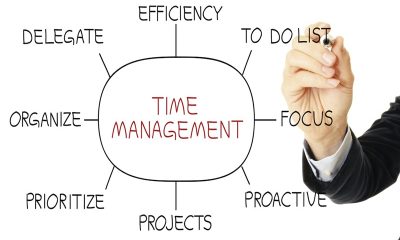Career Exploration
Medical Writing Careers in Pharmaceuticals

Embark on a journey into the dynamic field of medical writing within the pharmaceutical industry, where professionals play a crucial role in communicating complex scientific information to diverse audiences. From medical writers to regulatory affairs writers, explore the diverse career opportunities that contribute to the development and dissemination of accurate and compliant medical content. If you like our medical writing careers article, do recommend it to people recommend us. Share it with people who can benefit form the read.
Medical Writer: Communicating Scientific Information
Regulatory Affairs Writer: Crafting Regulatory Submissions
Clinical Research Writer: Documenting Clinical Trials
Medical Communication Specialist: Engaging with Stakeholders
Publication Writer: Contributing to Scientific Literature
Medical Editor: Ensuring Accuracy and Consistency
Pharmacovigilance Writer: Documenting Drug Safety Information
Medical Science Liaison Writer: Supporting Field Teams
Health Economics and Outcomes Research Writer: Communicating Value
Health Economics and Outcomes Research (HEOR) plays a pivotal role in the pharmaceutical industry, providing essential insights into the value of healthcare interventions. As part of this dynamic field, Health Economics and Outcomes Research Writers are instrumental in effectively communicating the value of pharmaceutical products and healthcare solutions.
Understanding the Role
In the realm of pharmaceuticals, the Health Economics and Outcomes Research Writer is tasked with translating complex scientific and clinical data into compelling narratives that resonate with diverse audiences. These professionals bridge the gap between the technical intricacies of healthcare research and the broader understanding required by stakeholders, including healthcare providers, payers, and patients.
Crafting a Compelling Narrative
One of the primary responsibilities of a Health Economics and Outcomes Research Writer is to craft persuasive narratives that highlight the economic and clinical value of a pharmaceutical product. This involves synthesizing data from various sources, including clinical trials, real-world evidence, and economic analyses, to construct a cohesive and persuasive story.
Collaborating with Multidisciplinary Teams
Successful communication in the realm of Health Economics and Outcomes Research requires collaboration with a diverse range of experts. Writers in this field work closely with health economists, statisticians, and clinicians to ensure that the narrative accurately reflects the nuanced findings of the research. Effective collaboration is crucial in presenting a comprehensive and cohesive story that resonates with both scientific and non-scientific audiences.
Adapting to Regulatory Guidelines
Given the highly regulated nature of the pharmaceutical industry, Health Economics and Outcomes Research Writers must be adept at navigating and adhering to regulatory guidelines. Ensuring compliance with regulatory standards is essential to maintain the credibility and integrity of the communicated information.
Addressing Market Access Challenges
In an ever-evolving healthcare landscape, Health Economics and Outcomes Research Writers play a crucial role in addressing market access challenges. By providing evidence-based narratives that emphasize the value proposition of pharmaceutical products, these professionals contribute to overcoming barriers to market entry and reimbursement.
Impact on Decision-Making
Ultimately, the work of Health Economics and Outcomes Research Writers has a direct impact on decision-making processes within the pharmaceutical industry. The narratives they create influence key stakeholders, guiding them in making informed decisions regarding the adoption and utilization of healthcare interventions.
Health Economics and Outcomes Research Writers are integral to the success of pharmaceutical endeavors, as they bridge the gap between complex research findings and effective communication. By distilling intricate data into persuasive narratives, these professionals contribute to the broader goal of improving healthcare outcomes and ensuring the successful market access of pharmaceutical products. As the pharmaceutical industry continues to advance, the role of Health Economics and Outcomes Research Writers will remain essential in shaping the narrative around the value of healthcare interventions.
Medical Writing Manager: Overseeing Writing Teams
Continuous Learning and Collaboration: Navigating Evolving Guidelines
Conclusion: Facilitating Effective Communication in Pharmaceuticals
We hope you were able to find a befitting option from within the medical writing careers options above. Professionals in medical writing facilitate effective communication in the pharmaceutical industry by translating complex scientific information into accessible and compliant content. From regulatory submissions to educational materials, these individuals contribute to the accurate and transparent dissemination of medical information.
If the Medical Writing Careers interests you, you can get in touch with Pharmaceutical executive search firm to further explore your career options. We have done extensive research and prepared an article on Pharmaceutical Digitization and IT Careers we hope you will like it and may benefit from the information therein.
Career Exploration
Placing Success: The Impact of Product Design & Development Executive Placement Services on Career Development

In today’s fiercely competitive market, securing a pivotal role in product design and development can be the cornerstone of a successful career trajectory. However, navigating the intricate landscape of executive-level positions in this domain requires more than just skill and experience. It demands strategic networking, industry insights, and access to exclusive opportunities. This is where specialized executive placement services tailored for product design and development professionals come into play. In this comprehensive exploration, we delve into the profound impact of these services on career development and advancement.
Understanding Product Design & Development Executive Placement Services
Product design and development executive placement services are specialized agencies dedicated to sourcing, vetting, and placing top-tier talent within the industry. These agencies possess a deep understanding of the unique skill sets and leadership qualities required for success in product innovation and development. By leveraging their extensive networks and industry expertise, they serve as matchmakers, connecting skilled professionals with leading companies seeking visionary leadership.
The Role of Executive Placement Services
At the heart of product design and development executive placement services lies their role as facilitators of talent acquisition. They bridge the gap between employers seeking exceptional executives and seasoned professionals seeking new opportunities for growth and advancement. By meticulously assessing the needs of both parties, these services streamline the hiring process, ensuring that the right talent is placed in the right positions.
Navigating Career Development with Executive Placement Services
For professionals aspiring to excel in product design and development, partnering with executive placement services can be a game-changer. These services offer unparalleled access to a vast array of career opportunities, ranging from established corporations to cutting-edge startups. Moreover, they provide invaluable guidance and support throughout the job search process, helping individuals navigate complex negotiations and secure positions that align with their long-term career goals.
Maximizing Career Potential Through Strategic Placement
The true value of product design and development executive placement services lies in their ability to strategically position professionals for success. By leveraging their industry insights and connections, these services identify opportunities that not only match a candidate’s skill set but also offer room for growth and advancement. Whether it’s securing a leadership role in a burgeoning startup or joining the ranks of an industry giant, strategic placement can propel careers to new heights.
Unlocking Opportunities for Growth and Advancement
One of the key benefits of partnering with executive placement services is the exposure to diverse career paths and opportunities for professional growth. Through their extensive networks and relationships with industry leaders, these services provide access to exclusive job openings and hidden gems that may not be advertised through traditional channels. This exposure not only broadens horizons but also fosters continuous learning and skill development, essential for staying ahead in a rapidly evolving industry.
Building a Robust Professional Network
In the realm of product design and development, networking is paramount to success. Executive placement services offer professionals the opportunity to connect with industry insiders, thought leaders, and fellow professionals, thereby expanding their professional network exponentially. These connections not only open doors to new career opportunities but also serve as a source of mentorship, collaboration, and support throughout the journey of career development.
Securing Success through Tailored Career Strategies
Central to the mission of product design and development executive placement services is the crafting of tailored career strategies designed to maximize success. By conducting thorough assessments of a candidate’s strengths, aspirations, and preferences, these services ensure that each career move is strategic and aligned with long-term goals. From negotiating compensation packages to navigating organizational culture, they provide personalized guidance every step of the way.
Elevating Industry Standards Through Exceptional Talent
The impact of product design and development executive placement services extends far beyond individual careers; it shapes the trajectory of the entire industry. By facilitating the placement of exceptional talent in key leadership roles, these agencies contribute to raising industry standards and driving innovation forward. Through their relentless pursuit of excellence, they inspire a culture of innovation and collaboration that propels the industry to new heights.
Conclusion
In a field as dynamic and fast-paced as product design and development, the right career move can make all the difference. Product design & development executive placement services offer professionals the opportunity to elevate their careers by providing access to exclusive opportunities, strategic guidance, and invaluable industry insights. By leveraging these services, individuals can navigate the complexities of the job market with confidence, secure positions that align with their aspirations, and ultimately, achieve unprecedented success in their careers.
Career Exploration
Crafting Success: How Additive Manufacturing & 3D Printing Executive Placement Services Are Redefining Career Trajectories

The realm of Additive Manufacturing and 3D Printing has rapidly expanded, and so have the career opportunities within these groundbreaking industries. This article explores how executive placement services are playing a pivotal role in reshaping career trajectories for professionals in Additive Manufacturing and 3D Printing.
The Rise of Additive Manufacturing & 3D Printing Executive Placement Services
As technology progresses, the demand for skilled professionals in Additive Manufacturing and 3D Printing is surging. Specialized executive placement services have emerged to bridge the gap between talented individuals and leading companies in these industries. In recent years, the growth of Additive Manufacturing and 3D Printing has led to a surge in demand for executives who can navigate the complexities of these innovative fields. From engineering and design to manufacturing and supply chain management, there is a need for seasoned professionals who can lead companies to success in the rapidly evolving landscape of additive technologies.
Navigating Career Trajectories in Additive Manufacturing: The Role of Executive Placement
Executive placement services focus on matching top-tier talent with companies seeking leadership in Additive Manufacturing. They streamline the recruitment process, ensuring a perfect alignment of skills, experience, and organizational culture. These services delve deep into the intricacies of Additive Manufacturing and 3D Printing, understanding the specific needs of hiring companies and the aspirations of job-seeking executives. By leveraging their industry expertise and extensive networks, executive placement services facilitate connections that go beyond mere job placements—they foster long-term partnerships that drive innovation and growth.
The Impact of 3D Printing Executive Placement Services on Career Development
Additive Manufacturing and 3D Printing Executive Placement Services are not merely job-matching platforms; they are catalysts for professional growth. By connecting executives with visionary companies, these services elevate career trajectories and contribute to industry innovation. For executives seeking new challenges and opportunities, these placement services offer a gateway to career advancement. Whether transitioning to a leadership role within the additive manufacturing space or making a lateral move to a company at the forefront of 3D printing technology, executive placement services provide the guidance and support needed to navigate career transitions with confidence and ease.
Unveiling Opportunities: How Executive Placement Facilitates Career Transformation
In a rapidly evolving industry, professionals often seek transformative career experiences. Executive placement services act as the catalyst for such transformations, presenting opportunities that align with individual aspirations and the dynamic needs of Additive Manufacturing and 3D Printing companies. Through personalized guidance and strategic career planning, these services empower executives to explore new horizons and pursue ambitious career goals. Whether aiming for vertical advancement within their current field or branching out into related industries, executive placement services provide the resources and support necessary to turn aspirations into reality.
Strategies for Success: Leveraging Additive Manufacturing & 3D Printing Executive Placement Services in Your Career Search
Understanding Industry Dynamics: In the fast-paced world of Additive Manufacturing and 3D Printing, staying informed about industry trends is crucial. Executive placement services excel in matching professionals with companies at the forefront of innovation.
Tailoring Your Skillset: Executive placement services prioritize matching skills and expertise with the specific requirements of hiring companies. Tailor your skillset to meet the evolving demands of Additive Manufacturing and 3D Printing to maximize your placement success.
Building a Strong Professional Network: Networking remains a cornerstone of career success. Executive placement services often have extensive industry networks, providing opportunities to connect with key players and decision-makers in Additive Manufacturing and 3D Printing.
Showcasing Leadership Qualities: Leadership is highly valued in executive roles within Additive Manufacturing and 3D Printing. Highlighting your leadership qualities and experiences will enhance your appeal to executive placement services and potential employers alike.
Conclusion: Redefining Futures through Additive Manufacturing & 3D Printing Executive Placement Services
As Additive Manufacturing and 3D Printing continue to reshape industries, the role of executive placement services becomes increasingly vital. By strategically aligning talent with opportunity, these services are not only transforming individual careers but also contributing to the continued evolution of these groundbreaking technologies. Embrace the future with Additive Manufacturing & 3D Printing Executive Placement Services, and craft a trajectory that leads to unparalleled success in this dynamic and innovative field.
Career Exploration
Securing Your Dream Job: Insights from Marketing Research & Consumer Insights Staffing Solutions Companies

In today’s rapidly evolving job market, landing your dream job requires more than just submitting resumes and attending interviews. Especially in specialized fields like marketing research and consumer insights, professionals often find themselves competing for coveted positions where standing out is essential. In this competitive landscape, the role of Marketing Research & Consumer Insights Staffing Solutions companies becomes increasingly vital. These agencies specialize in connecting talented individuals with top-tier opportunities, providing invaluable guidance and support throughout the job search process. Let’s explore how leveraging the expertise of these staffing solutions can significantly enhance your chances of securing your dream job.
Understanding Marketing Research & Consumer Insights Staffing Solutions
Marketing Research & Consumer Insights Staffing Solutions companies operate as intermediaries between job seekers and employers within the marketing research and consumer insights industry. With their deep understanding of the field and extensive networks, these agencies play a crucial role in facilitating successful matches. They focus on sourcing, screening, and placing candidates in roles that align with their skills, experience, and career goals. By leveraging their industry expertise and connections, job seekers can gain access to a wide range of opportunities that may not be advertised through traditional channels.
Tailored Job Search Strategies
Navigating the job market can be overwhelming, especially for professionals seeking roles in niche industries like marketing research and consumer insights. Marketing Research & Consumer Insights Staffing Solutions companies offer tailored job search strategies designed to streamline the process and maximize success. These strategies may include resume optimization, portfolio development, interview coaching, and networking guidance. By working closely with recruiters who understand the intricacies of the industry, job seekers can present themselves effectively to potential employers and stand out from the competition.
Access to Exclusive Opportunities
One of the primary advantages of partnering with Marketing Research & Consumer Insights Staffing Solutions companies is gaining access to exclusive job opportunities. These agencies often have insider knowledge of unadvertised roles and maintain close relationships with leading companies in the field. By tapping into their extensive network of clients and industry contacts, job seekers can discover hidden gems and explore opportunities that may not be accessible through traditional job boards or recruitment platforms. This access to exclusive opportunities significantly expands the pool of potential roles available to candidates, increasing their chances of finding the perfect fit for their skills and aspirations.
Expert Guidance and Support
Securing your dream job requires more than just technical skills and qualifications; it also demands strategic planning and effective execution. Marketing Research & Consumer Insights Staffing Solutions companies provide expert guidance and support to job seekers at every stage of the process. From initial consultation to post-placement assistance, recruiters offer valuable insights, advice, and feedback to help candidates navigate their career path with confidence. Whether it’s refining a resume, preparing for interviews, negotiating offers, or navigating career transitions, these agencies serve as trusted partners, empowering candidates to make informed decisions and achieve their professional goals.
Conclusion
In the competitive landscape of marketing research and consumer insights, securing your dream job requires a combination of strategic planning, industry knowledge, and networking prowess. By partnering with Marketing Research & Consumer Insights Staffing Solutions companies, professionals can gain access to specialized job search strategies, exclusive opportunities, and expert guidance tailored to their individual needs. Whether you’re a seasoned veteran or a recent graduate looking to break into the field, these agencies can provide the support and resources you need to succeed. With their assistance, you can confidently navigate the job market, showcase your talents, and embark on a rewarding career path in marketing research and consumer insights.
-

 Industry Insights7 months ago
Industry Insights7 months agoTech Trends Shaping the Future: A Comprehensive Overview
-

 Career Exploration7 months ago
Career Exploration7 months agoSpace Tourism: Opportunities Beyond the Stratosphere
-

 Professional Development7 months ago
Professional Development7 months agoThe Art of Effective Time Management for Career Growth
-

 Job Search Strategies7 months ago
Job Search Strategies7 months agoEffective Time Management During Job Hunting
-

 Job Search Strategies7 months ago
Job Search Strategies7 months agoUsing Job Search Engines to Your Advantage
-

 Job Search Strategies7 months ago
Job Search Strategies7 months agoRefining Your Elevator Pitch for Networking Success
-

 Job Search Strategies7 months ago
Job Search Strategies7 months agoExcel in the Art of Navigating Job Fairs and Networking Events
-

 Industry Insights7 months ago
Industry Insights7 months agoValue-Based Care: Reshaping Healthcare Industry Models

































